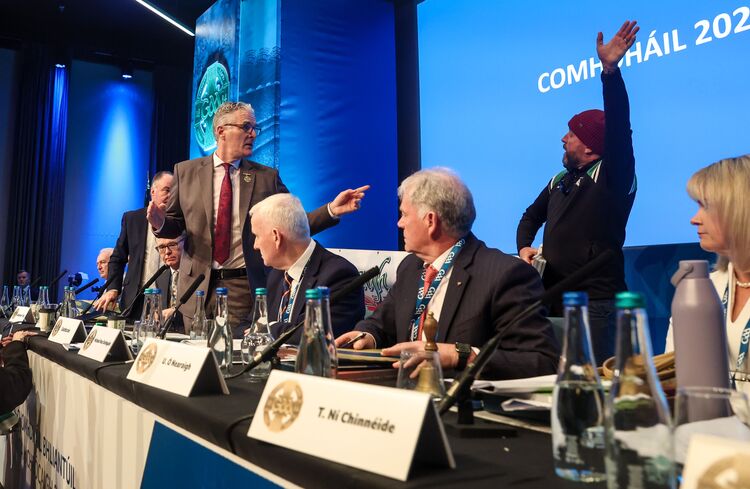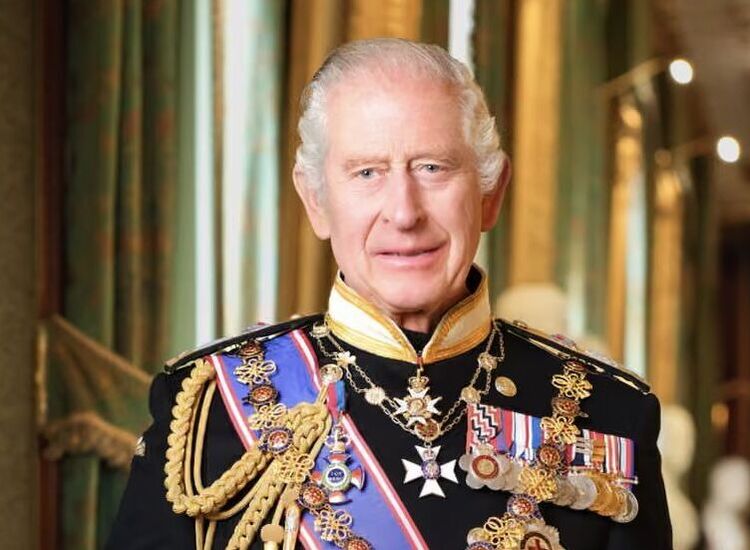Just over a year go a prominent trio of diaspora voting rights activists wrote to Irish government ministers expressing their disappointment that the Irish State had not held an official centennial event honoring the role of Irish emigrants in the creation of the Free State - this as as part of the Irish government's Decade of Centenaries program.
The three were Hilary Beirne, Chairman of the Saint Patrick’s Day Foundation and CAO of the New York Saint Patrick’s Day Parade, Billy Lawless, former Senator for the Diaspora (appointed, not elected) and co-founder www.votingrights.ie, and Kevin J. Sullivan, co-founder www.votingrights.ie.
At the time the three stated in part: "We find this omission lamentable given the enormous contribution of Irish emigrants during the critical years of 1916 to 1922 - and ironic given that Easter Proclamation makes an explicit reference to being 'supported by her exiled children in America.'
"We recognize that much has been done to commemorate the Decade of Centenaries and you are to be commended for your many efforts, but the omission of the role of emigrants is striking. Emigrants would like to be written back into Irish history.
"For over two centuries emigration has been a defining feature of Irish life and society, and it continues to be so. Yet traditionally little consideration has been given to the plight of those who may feel forced to leave the country.
"Many have noted how citizens living outside the state have long been treated with ambivalence by politicians and policy-makers - an ambivalence still evident today, resulting in the continuing exclusion of all citizens living outside the State, including those in Northern Ireland, from the political process, and from voting for an Irish President, who represents all Irish people.
"Even though Ireland is a very new democracy we fear that it is fast becoming a complacent and parochial one. An unstated hierarchy of Irishness exists in Irish political culture which defines Irish-born citizens living outside the state as second class citizens. It's hard to promote a shared Ireland when your own citizens aren’t allowed to vote for their own President. A shared Ireland must include emigrants whether they live in London, Manchester, or the Gulf States.
"The current electoral system enshrines this second-class status: emigrants who do not intend to return within eighteen months lose their right to vote the day they leave (unlike most democracies in the world), and postal voting is so restricted that few of those who maintain the right to vote in theory can avail of it. Geographical gerrymandering restricts voting rights, and a century after Partition, citizens living just over the border have no direct, meaningful voice in the Republic, even as their numbers grow.
"To dismiss the contribution of the Irish abroad in creating the Republic is an enormous historical omission. There would be no Republic without the robust and constant support of her overseas children.“
"Ireland is an outlier when it comes to meeting E.U. voting rights norms for emigrants. Our overseas voting system is the most restrictive in Europe- both in terms of national and E.U. Parliamentary elections. Ireland’s unwillingness to expand voting rights for those living outside the state stands in direct contradiction to the core E.U. principle of freedom of movement.
"To dismiss the contribution of the Irish abroad in creating the Republic is an enormous historical omission. There would be no Republic without the robust and constant support of her overseas children.
"To dismiss the contribution of the Irish abroad in creating the Republic is an enormous historical omission. There would be no Republic without the robust and constant support of her overseas children. As President Higgins stated in his Mansion House address in January 2019 on the 100th anniversary of the first seating of the Irish Dáil: 'The First Dáil drew its support not only from the will of the people of Ireland, but from Irish people across the world. We are, and we must never forget, a migratory and diasporic people. Indeed, at the turn of the last century, there were more Irish-born people living abroad than in Ireland. Throughout our War of Independence, Irishmen and Irishwomen in the United States of America would demonstrate, time and time again, their solidarity and support for the cause of Irish freedom, even if they differed as to the means by which it was to be achieved.'"
The statement concluded: "Ireland must give Irish emigrants the recognition they well deserve as founders of the Republic and recognize the crucial role they continue to play in sustaining Ireland’s economic and political interests globally. We encourage the political leaders of all parties to end their century-old political ambivalence toward Irish citizens living outside the state. The hundreds of thousands of young people who left Ireland in recent years and those about to leave are an immense source of creativity, energy and good ideas. Why exclude and deny them their voting rights when so many want and will return home to Ireland? Irish politics needs to move from the local and the parochial to a new, richer and deeper understanding of what it means to be a citizen in a more inclusive modern Irish Nation. We believe Ireland will be a more equal and democratic nation if all citizens, regardless of where they live, are allowed to vote for the President of our country."
Almost a year to the day since that three signature statement, one of the signatories, Hilary Beirne, announced that he will be running for the Irish Senate, Seanad Eireann, by way of the Senate's university panel election route. Mr. Beirne, a native of Roscommon, made the announcement while accepting an award at a reception at the Irish Consulate in Boston as part of the annual Golden Bridges conference.
The matter of voting rights for the diaspora will now be a matter for discussion in a Senate election campaign. Mr. Beirne deserves support as he raises this all-too-old issue anew.











